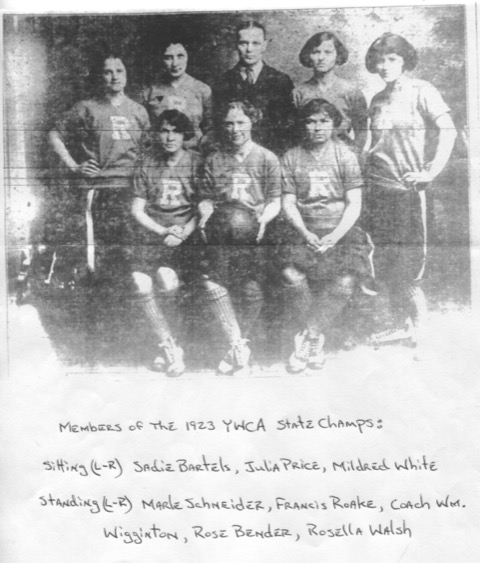
Items of Interest from Years Ago
Submitted by Al Shipley, City Historian and Rahway Library Research Consultant
Over the past eight years, the January article for this column has featured news items that appeared on the pages of Rahway’s home town paper the Rahway News Record and its predecessor, the Rahway Record from 100, 75, and 50 years ago. This year we go back to 1923, 1948, and 1973.
1923 The 1920s was a time when conservative policies were influencing many parts of society both on the national and local levels. The PTA at Lincoln School discussed petitioning the Empire Theater management requesting they ban the showing of films starring Roscoe “Fatty” Arbuckle which they felt were inappropriate for children. A featured speaker at a Rahway Council of Churches meeting spoke on the topic “Saving the Sabbath” and warned “If the Sabbath goes, everything else goes with it.” The local chapter of the Women’s Christian Temperance Union proposed banning tennis and baseball from being played on Sundays.
The city was growing after World War I and new public buildings were needed to keep up with the growth. Members of the Board of Education realized that two new grammar schools would soon need to be built in order to prepare for the youngsters born after the war. City officials were also discussing a new hospital and a proper city hall and police station.
The YWCA Ladies Basketball Team won the State Championship Title finishing with a record of 11-1. The Rahway ladies outscored their opponents 196-67. Stars of the team were Rose Bender and Julia Price. Bender scored a season total of 76 points, nine more than the total number scored against her team.
The Rebecca Cornell Chapter of the Daughters of the American Revolution began a campaign to seek funds for the restoration of the gravestones of Abraham Clark and his wife, Sarah. Clark, a signer of the Declaration of Independence, is buried in the historic Rahway Cemetery.
1948 City Council was confronted with two problems that still concern the city today – flooding and parking. The Rahway River, with its many branches, posed potential problems in many parts of the city. Members of Council spent many meetings discussing possible remedies. Parking problems in the business district were becoming more acute as more cars were bringing more shoppers into Rahway’s active district. Council was also studying the feasibility of twice-a- week garbage collection for the entire year. The pick-up policy up to that point was twice-a-week collection only during the summer months with once-a-week collection the rest of the year.
On May 27, the 125th Anniversary issue of the Rahway News Record, one of the oldest papers in the nation, was published. The 118-page commemorative issue contained several hundred photos and a lengthy account of the history of the city. All facets of life in Rahway were covered in articles featuring clubs, churches, industries, schools, public institutions, and city governmental departments.
1948 marked the beginning of the largest development projects in the history of the city. Ground was broken for new homes in the area west of Madison Avenue all the way back to Madison Hill Road. Homes were also being built on the acreage between Lake Avenue and Inman Avenue.
1973 Title IX, a Federal Law prohibiting sex-based discrimination in schools that receive funding from the federal government, was passed on June 23, 1972. At Rahway High School, a small number of young women joined established boys’ teams after January 1973, when winter sports programs were beginning their seasons. The young women joined the rosters of the swim team, indoor and spring track teams, and the tennis team. By the 1973-74 school year a girls’ softball team was started and the next school year saw the inauguration of girls’ basketball and tennis teams.
At the May meeting of the Board of Education, the members approved a course in computer instruction for the1973-74 school term. The new addition to the curriculum was made possible by a grant from the Merck Corporation Foundation.
The United States Postal Service announced the eight stamp designs that would be issued during 1973 to commemorate the bicentennial of the country. The Bicentennial Stamp Series started in 1971 and would be issued through 1976.
By 1973, interest in the upcoming 200th Anniversary of the birth of our nation was growing across the country. Plans for a Rahway Bicentennial Committee were being discussed and a group would be named early in the next year. The Rahway Historical Society started the bicentennial activities by joining with Johnson & Johnson in hosting a stagecoach run from New York City to Philadelphia. The coach would travel along St. Georges Avenue and make a stop at the Merchants and Drovers.

